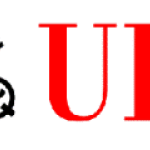- Industria: Financial services
- Number of terms: 25840
- Number of blossaries: 0
- Company Profile:
UBS AG, a financial services firm, provides wealth management, asset management, and investment banking services to private, corporate, and institutional clients worldwide.
Four bodies supervise banking activities in Switzerland: the Federal Banking Commission (highest supervisory authority), the statutory auditors (as prescribed by Swiss banking legislation), the internal auditors, and the auditors as prescribed by the Swiss Code of Obligations.
Industry:Banking
Also: cheque card (US). Card issued by a bank for accountholders who are members of a cheque system. The bank promises to cash cheques up to a certain amount provided that the signature and account number on the cheque and the cheque card are identical and the cheque card number is noted on the back of the cheque.
Industry:Banking
Situation where the share capital of a company has only one class of share. The term relates to the earlier practise of dividing shares into (preferred) registered and bearer shares. By simplifying the share structure management demonstrates that it is taking the interests of shareholders into account, is treating shareholders equally and seeks to avoid conflicts of interest between different classes of shareholder.
Industry:Banking
Also: money stock. The stock of money that exists in an economy at a given time. stabilising prices by steering the money supply is an important economic policy target. In Switzerland, money supply policy measures focused for some years (until 1978) on M1 (circulation of coins and notes in the non-banking sector and domestic non-bank demand deposits at banks and in postal checking accounts). In 1980 the Swiss National Bank began setting a new money supply target based on the adjusted central bank money supply. Factoring in further monetary aggregates (time deposits, savings) gives M2 and M3. The latter has served as reference parameter for the Swiss National Bank since 1997.
Industry:Banking
Swiss commercial bank under the sole or majority ownership of a cantonal government. They conduct the bulk of their business in the respective canton. Most cantonal banks are public-law corporations, but more and more are converting to public limited companies which are, as a rule, backed by a guarantee under which the canton assumes liability for all or part of the bank's obligations.
Industry:Banking
Market manipulation is the practise of using sham transactions, other transactions without an economic basis or simply placing orders with intent to create the impression of market activity or to distort supply and demand, share prices or the valuation of securities.
Industry:Banking
Indicates that the price of the instrument is equal to its face or nominal value. See also issue at par, par value price.
Industry:Banking
Exchange specialising in commodities / raw materials contracts. The major commodities exchanges are located in Chicago, London and New York.
Industry:Banking
An acceptance which varies from the terms of the bill itself, e.g. in that it calls for payment of only part of the amount. See also bill of exchange.
Industry:Banking
A foreign bank's account with a domestic bank, either in local currency or foreign currency. The domestic bank maintains the account and prepares the statement. Opposite: nostro account.
Industry:Banking
